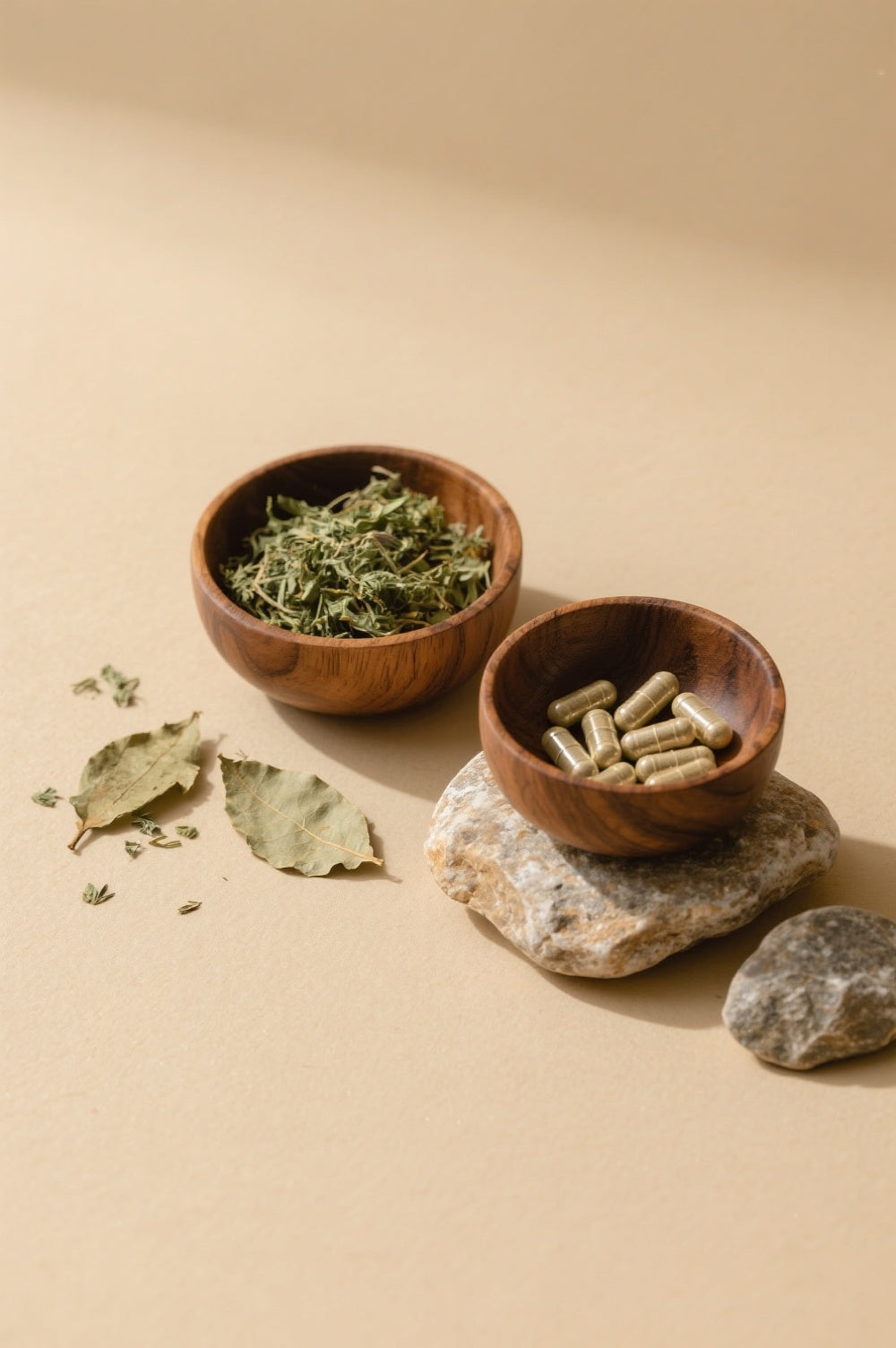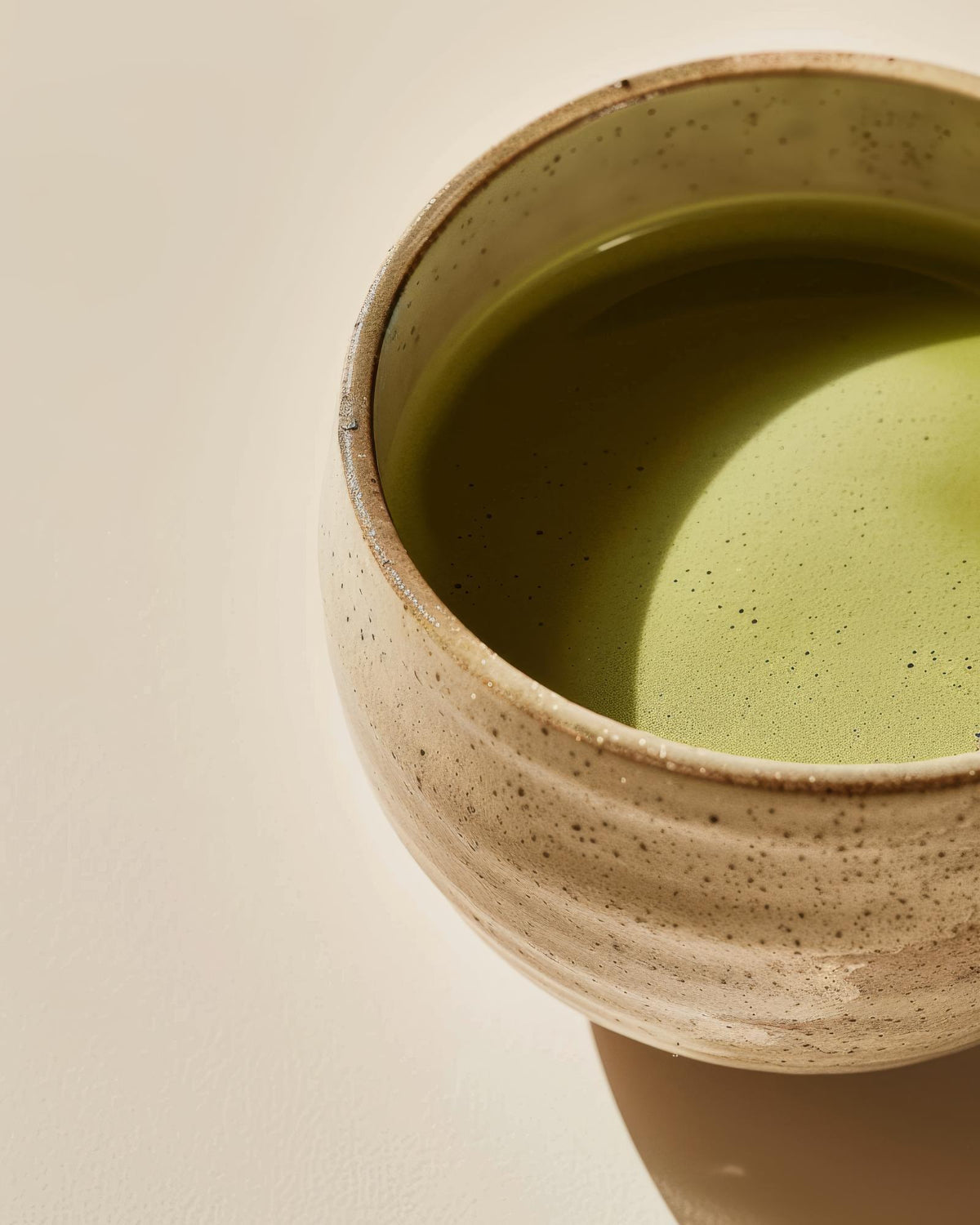5 Natural Alternatives to Common Medications
In every drugstore aisle, there’s a bottle for every symptom: headaches, anxiety, allergies, bloating, PMS, you name it. But most of those meds come with trade-offs like side effects, dependency, or just masking the issue instead of addressing it.
Herbal medicine works differently. It supports the body’s own healing abilities instead of just suppressing symptoms. And while there’s a time and place for pharmaceuticals, many common issues can be treated just as effectively, and often more gently, with plants.
Here are 5 herbs that can naturally replace popular over-the-counter medications, without the side effects or synthetic fillers.
1. Willow Bark
Natural alternative to: Ibuprofen or Aspirin (NSAIDs)
Willow bark has been used for thousands of years to relieve pain, inflammation, and fevers. It contains salicin, the original compound that inspired the creation of aspirin.
What it helps with:
-
Headaches
-
Muscle aches
-
Menstrual cramps
-
Joint pain and inflammation
Why it’s better:
Unlike synthetic NSAIDs, willow bark works gently on the body and doesn’t irritate the stomach lining the same way aspirin can. It also contains flavonoids and polyphenols, which support overall inflammation reduction.
* Note: Those with aspirin allergies or on blood thinners should avoid willow bark.
2. Lemon Balm
Natural alternative to: Sleep aids or anxiety meds
Feeling wired, anxious, or can’t sleep? Lemon balm (Melissa officinalis) is a calming nervine herb that promotes relaxation without sedation. It supports GABA production in the brain—just like some pharmaceutical anti-anxiety meds—but without the risk of dependency.
What it helps with:
-
Anxiety
-
Insomnia
-
Racing thoughts
-
PMS mood swings
Why it’s better:
Unlike melatonin or over-the-counter sleep drugs that knock you out and leave you groggy, lemon balm helps calm your system and ease you into sleep naturally. It also supports the digestive and endocrine systems—bonus.
3. Peppermint
Natural alternative to: Antacids and gas relief pills (like TUMS or Gas-X)
Peppermint isn’t just a flavor, it’s one of the most effective herbs for gut discomfort. The volatile oils in peppermint relax the smooth muscles of the gastrointestinal tract, easing cramping, bloating, and gas.
What it helps with:
-
Indigestion
-
Gas and bloating
-
IBS symptoms
-
Nausea
Why it’s better:
Peppermint addresses the root cause of digestive discomfort (like spasms and slow motility) rather than just neutralizing stomach acid. Plus, it’s cooling, antimicrobial, and refreshing—internally and externally.
4. Nettle Leaf
Natural alternative to: Antihistamines (like Claritin, Zyrtec, Benadryl)
Got seasonal allergies? Nettle is one of the most underrated herbal antihistamines. It works by inhibiting histamine receptors and reducing inflammatory responses in the body—without the drowsiness that comes with over-the-counter allergy meds.
What it helps with:
-
Hay fever
-
Sneezing and congestion
-
Itchy eyes and throat
-
Skin rashes
Why it’s better:
Nettle doesn’t suppress your immune system—it regulates it. It’s rich in minerals like iron and magnesium, supports detox pathways, and is safe for long-term use during allergy seasons.
5. Ginger Root
Natural alternative to: Dramamine, Pepto-Bismol, or motion sickness meds
Ginger is a superstar for nausea and inflammation, and works as well as many anti-nausea drugs—without drowsiness or side effects. It’s especially useful for morning sickness, travel nausea, or digestive upset from food sensitivities.
What it helps with:
-
Motion sickness
-
Morning sickness
-
Stomach cramps
-
Inflammation and joint pain
Why it’s better:
Ginger improves digestion, reduces inflammation, and supports circulation. It doesn’t just treat the symptom—it treats the system. Plus, it’s versatile: use it fresh, dried, as a tea, or in tincture form.
Final Thoughts: Rethinking Your Medicine Cabinet
You don’t have to choose between “natural” and “effective.” You can have both. Herbs have been used for centuries to support the body in ways that are both gentle and powerful. And while modern medicine has its place, especially in acute care, many everyday symptoms can be addressed more safely and sustainably with plants.
If you’re ready to swap out your drugstore go-tos for something more natural, these five herbs are a great place to start. They're not just replacements, they’re upgrades.



